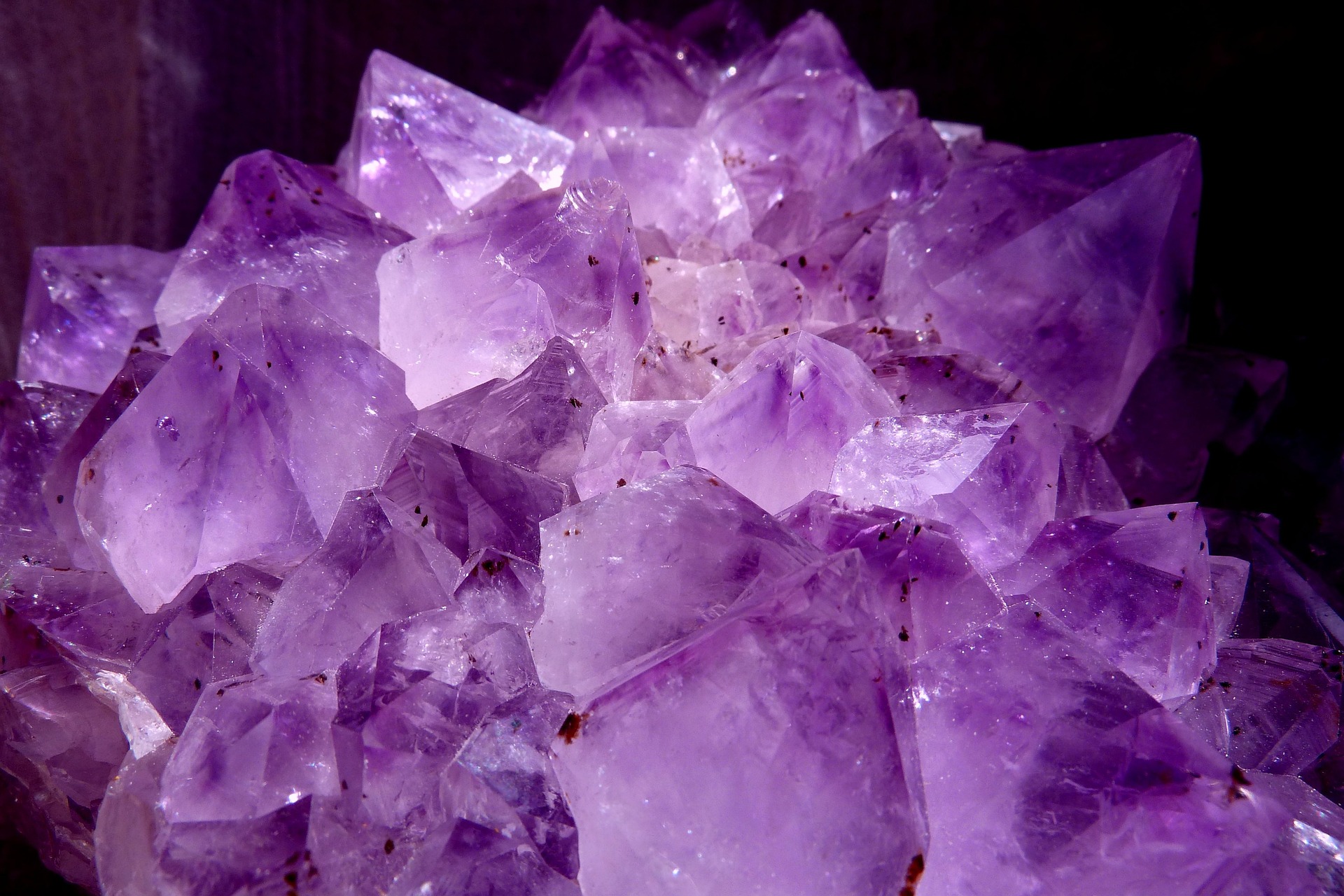Crystal Biblical Meaning - What Does The Bible Say About Crystals?
Crystals are interesting to a lot of people, and many believe that they have magical powers that can be used to heal. Some people also think that crystals can help with spiritual growth and bring about positive changes in life. As Christians, people often wonder if it is okay to be interested in crystals and wonder its crystal biblical meaning.
Author:Suleman ShahReviewer:Han JuDec 15, 20223.9K Shares563.2K Views

Crystals are interesting to a lot of people, and many believe that they have magical powers that can be used to heal.
Some people also think that crystals can help with spiritual growth and bring about positive changes in life. As Christians, people often wonder if it is okay to be interested in crystals and wonder its crystal biblical meaning.
This article goes into detail about what the Bible says about crystals and where it talks about them.
Healing Crystals
Currently, mystical and healing stones are fashionable. Believers in crystals believe that various crystals have unique abilities to benefit everyone who wears or uses them.
Crystals were thought to have supernatural properties in Egypt, Greece, and China. Crystals are utilized to heal, yet there is no scientific evidence.
Since they are not supernatural or therapeutic, crystals are best understood as minerals. Crystals are lovely minerals that God created; they are not magical.
Beautiful Crystals
Crystals are talked about a lot in the Old Testament. Job 28:19 talks about a crystal called a topaz. It says, “The topaz of Cush cannot compare with it; it cannot be bought with pure gold.”
Lamentations 4:7 uses rubies as an example: “Their princes were brighter than snow and whiter than milk, their bodies ruddier than rubies, their appearance like lapis lazuli.”
In Proverbs 8:11, “for wisdom is more precious than rubies, and nothing you desire can compare with her.” In these ways, the Bible talks about a lot of different things when it talks about crystals.
The New Testament talks about crystals in the New Heaven and New Earth, just like the Old Testament. In the New Heaven and New Earth, the river is said to be as clear as crystal (Revelation 22:1).
The area in front of God's throne is also said to be as clear as a crystal (Revelation 4:6). Even though the Bible uses beautiful descriptions of crystals in its writings, it never says that crystals have healing or magical powers, which is what most people think.
Special Properties
As has already been said, crystals don't have any special powers because they don't have any special properties. Many people think that crystals can bring good luck, help with romantic relationships, and protect them from evil forces. They also think that crystals can heal and cure illnesses.
As Christians, we know that the Bible never says any of these things about crystals. People who put so much stock in crystals are in some ways involved in the occult. The Bible tells us not to be a part of the occult.
Christians Using Crystals
Crystals are part of the occult, so Christians shouldn't use them. The occult is what we do when we use things like crystals to try to change the way things work.
Christians should not use crystals for "healing" or other magical purposes. If a Christian wants to wear a crystal just as jewelry and not for "special purposes," it is fine. Christians should just stay away from crystals and their "healing" powers.
The Bible never says that crystals have special powers, and sciencehas shown that crystals can't really heal anything or change what will happen. Crystals have been used all over the world for many different things, but we should never use them for occult or for occult practices.
People Also Ask
What Does Crystal Mean Biblically?
In the book of Revelation, crystal is used to describe parts of heaven. In the Bible, crystal is clear and see-through, like glass. The Bible also talks about precious stones, and they are mentioned as early as Genesis chapter 2.
What Crystals Are Named In The Bible?
At least 22 gemstones are mentioned in the Bible by name: adamant, agate, amber, amethyst, beryl, carbuncle, chalcedony, chrysolite, chrysoprase, coral, crystal, diamond, emerald, jacinth, jasper, ligure, onyx, ruby, sapphire, sardius, sardonyx, and topaz.
Does The Bible Mention Amethyst Crystal?
Amethyst, Ex 28:19, 39:12, Rev 21:20 Amethyst is the third stone in the third row of the breastplate and the twelfth and last stone listed in the foundation of the New Jerusalem.
Conclusion
Crystals don't have any metaphysical qualities, abilities, or uses, according to the crystal biblical meaning. The Bible talks about crystals because they are a beautiful part of God's world, even when they are found in nature. It shows how beautiful and wise God is because it is a part of his creation.

Suleman Shah
Author
Suleman Shah is a researcher and freelance writer. As a researcher, he has worked with MNS University of Agriculture, Multan (Pakistan) and Texas A & M University (USA). He regularly writes science articles and blogs for science news website immersse.com and open access publishers OA Publishing London and Scientific Times. He loves to keep himself updated on scientific developments and convert these developments into everyday language to update the readers about the developments in the scientific era. His primary research focus is Plant sciences, and he contributed to this field by publishing his research in scientific journals and presenting his work at many Conferences.
Shah graduated from the University of Agriculture Faisalabad (Pakistan) and started his professional carrier with Jaffer Agro Services and later with the Agriculture Department of the Government of Pakistan. His research interest compelled and attracted him to proceed with his carrier in Plant sciences research. So, he started his Ph.D. in Soil Science at MNS University of Agriculture Multan (Pakistan). Later, he started working as a visiting scholar with Texas A&M University (USA).
Shah’s experience with big Open Excess publishers like Springers, Frontiers, MDPI, etc., testified to his belief in Open Access as a barrier-removing mechanism between researchers and the readers of their research. Shah believes that Open Access is revolutionizing the publication process and benefitting research in all fields.

Han Ju
Reviewer
Hello! I'm Han Ju, the heart behind World Wide Journals. My life is a unique tapestry woven from the threads of news, spirituality, and science, enriched by melodies from my guitar. Raised amidst tales of the ancient and the arcane, I developed a keen eye for the stories that truly matter. Through my work, I seek to bridge the seen with the unseen, marrying the rigor of science with the depth of spirituality.
Each article at World Wide Journals is a piece of this ongoing quest, blending analysis with personal reflection. Whether exploring quantum frontiers or strumming chords under the stars, my aim is to inspire and provoke thought, inviting you into a world where every discovery is a note in the grand symphony of existence.
Welcome aboard this journey of insight and exploration, where curiosity leads and music guides.
Latest Articles
Popular Articles
